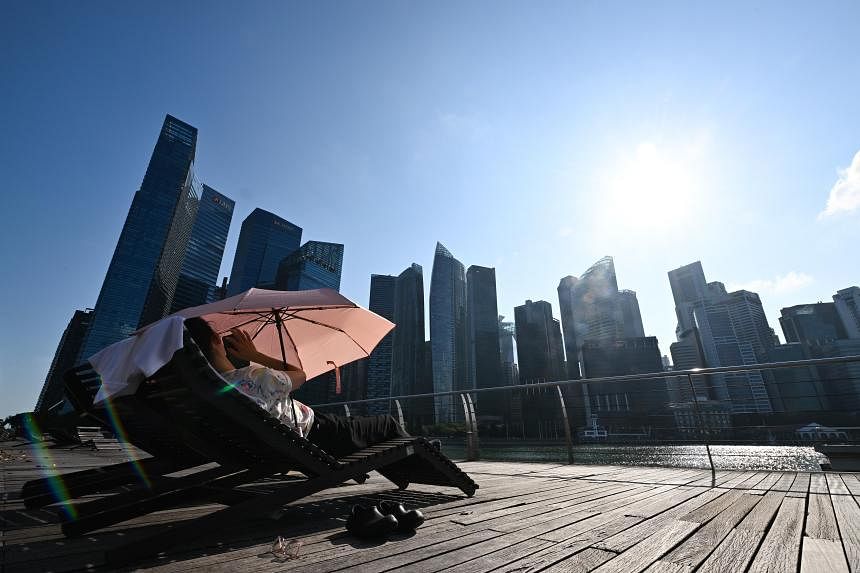SINGAPORE – Efforts by the Government to adapt to and mitigate climate change have made Singaporeans feel less threatened about the issue, according to a survey of public attitudes in 10 Asean member states.
The latest South-east Asia Climate Outlook 2023 Survey of 2,225 respondents found that Singaporeans, who made up 12.5 per cent of the total respondents, saw climate change less as a threat in 2023 than in 2021.
Less than half, or 43.7 per cent, of the Singaporean respondents saw climate change as “a serious and immediate threat to the well-being of my country” – the highest urgency option in the survey.
This response is lower than the overall 49.4 per cent of respondents from the 10 Asean states.
Despite 2023’s sentiment being slightly higher than the 40.5 per cent in 2022, Singaporeans’ urgency towards climate change in the past two years is significantly lower than the 66.4 per cent in 2021. This response was still lower than the overall Asean level of nearly 69 per cent in 2021.
The reduced urgency surprised researchers as the four-week online survey by the ISEAS – Yusof Ishak Institute was conducted from July 10 to Aug 7 in 2023 amid floods, heatwaves and droughts worldwide.
One reason, said Ms Sharon Seah, coordinator of the climate change in South-east Asia Programme at the institute, is that “Singaporean perceptions are influenced by government action”.
“The Government has been the most proactive stakeholder in dealing with climate, and you can see that nearly 55 per cent of Singaporeans say so, as opposed to (other respondents in) the region who feel that the civil society is most active”.
Ms Seah pointed to the data where Singaporeans are most positive about their government’s ability to protect them, and mitigate and adapt to climate change, revealing a high level of trust in the social compact that they have with the Government.
She added that the various agencies’ plans to improve energy, food and water security in the face of greater climate threats “have been very well done and this has increased the level of trust”.
Public communication on the Singapore Green Plan 2030, the Government’s nationally determined contribution from the Paris Agreement and long-term low greenhouse gas emission development strategies “has done very well, and increased Singaporeans’ level of trust”.
Having ratified the Paris Agreement, a legally binding international treaty on climate change in 2016, the Republic has committed to reach net-zero greenhouse gas emissions by 2050.
The Singapore Green Plan 2030 was launched by five ministries in February 2021 to rally the country towards net-zero carbon emissions.
It lays out strategies for the Republic to move towards a more sustainable future over the next decade, with the wide-ranging plan cutting across all sectors of society, from infrastructural development to research and innovation to training programmes.
Some targets include planting a million more trees, getting schools to reduce net carbon emissions by two-thirds by 2030, and setting aside $5 billion for coastal and drainage flood protection measures.
The five ministries involved are Education, National Development, Sustainability and the Environment, Trade and Industry, and Transport.
The Centre for Climate Research Singapore has projected that the country could experience a rise in daily mean temperature of 1.4 deg C to 4.6 deg C towards the end of this century, more intense and frequent heavy rain, and mean sea level rise of up to 1m by 2100.

